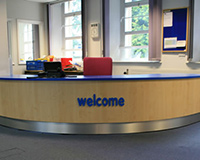 Is the real estate industry really about real estate?
Is the real estate industry really about real estate?
Yes, I know. You’ve heard it all before. The office is dead. Yawn. They have been saying that for 20 years but here we are in 2015 with office demand on a roll. Well sorry, but Ernest Hemingway had it right. “How did you go bankrupt?” “Two ways. Gradually, then suddenly,” he wrote in The Sun Also Rises. And the office market will be hit in just the same way.
Over the next five to 10 years perhaps 40-60% of companies will find they no longer have a need for offices as we use them now. We tend to think of big companies when we think of offices but the reality is that most businesses are small. The City of London issued a report at MIPIM showing that 98.6% of businesses are SMEs, and 80% have fewer than 10 employees. There are just 205 firms in the City with 250 or more employees. Some 72% of occupied units are less than 10,000 sq ft.
Now factor in the rise of “contingent” workers – part timers, contractors, self-employed – who are expected to be 40% of the US workforce by 2020.
Now add technological change to the mix and bang, it hits you like a brick. For this type of worker, what is the point of a conventional office? They don’t need an office to access their computer. Their work files are no longer in the office. They likely don’t have a boss who cannot function unless they are in line of sight. They don’t go to big company-wide, bureaucratic meetings. And most of the people they work with are “somewhere else”.
So why on earth do they need a costly office and the daily inconvenience of getting there? The answer lies in what it is that we humans can bring to the party when the party has been automated and robots are everywhere. Make no mistake, everything that can be automated will be. If you can codify it, you can automate it.
Which brings me to the Imaginarium, which is for many what will replace the office. This will be a place, a space, that allows – forces, even – humans to do what computers can’t. And this is to define, design and refine the world around us. To imagine, inspire, empathise, innovate, collaborate, and be ingenious and creative.
The real estate industry is moving beyond real estate. We do need to congregate, but we don’t need offices. It’s only as an Imaginarium that the office retains value. Their purpose is to provide the toolset, physical and virtual, to enable people to unlock their creativity.
People can and will work anywhere. And for much of the time they do this alone, in peace, at maximum concentration. But creativity, without which your future is bleak, requires regular doses of collaboration with other creative people, in spaces that inspire. We all need inspiration. We no longer need an office.
The real estate industry needs a new product.
 Essential tech: Smart receptions
Essential tech: Smart receptions
Vicinitee, which I jointly founded and still work with – though it is now wholly owned by British Land – is doing interesting work that involves my three favourite subjects: the Cloud, the Mobile and the Internet of Things.
For years Vicinitee has provided visitor management software to many of the highest-profile office buildings in London and further afield.
It seems to work smoothly. A visitor is booked in, they arrive at reception, are “processed”, then given a paper or plastic pass that they present at the access barriers, and away they go. Functional and better than paper systems, but a bit clunky and time consuming. Not a great experience.
Historically, access barriers have often been linked to building control systems but not to the internet. So you cannot “talk” to the barriers remotely. Today, this is changing and Vicinitee is working with a provider that is enabling internet barriers.
This, in turn, is helping to define a new process: a visitor is booked in by their host from their desk. This goes straight into Vicinitee, which then sends the guest’s mobile a text and/or email. This contains a link to a webpage containing a time-encoded barcode. They then simply enter the host’s building, ignore reception altogether and present the barcode to the barrier as usual. This lets them in, notifies their host and updates the core system.
No queues, waiting, hassle and – hopefully – no stress.
Antony Slumbers is founder and chief executive of software developer Estates Today. Follow him on Twitter for more on tech advances @antonyslumbers










